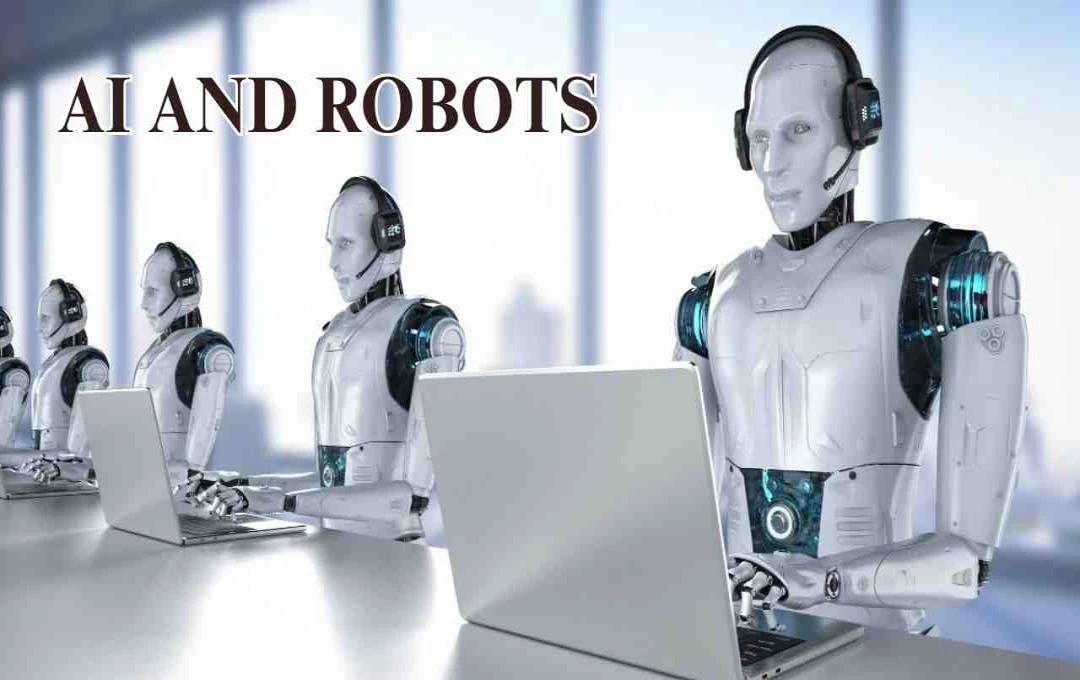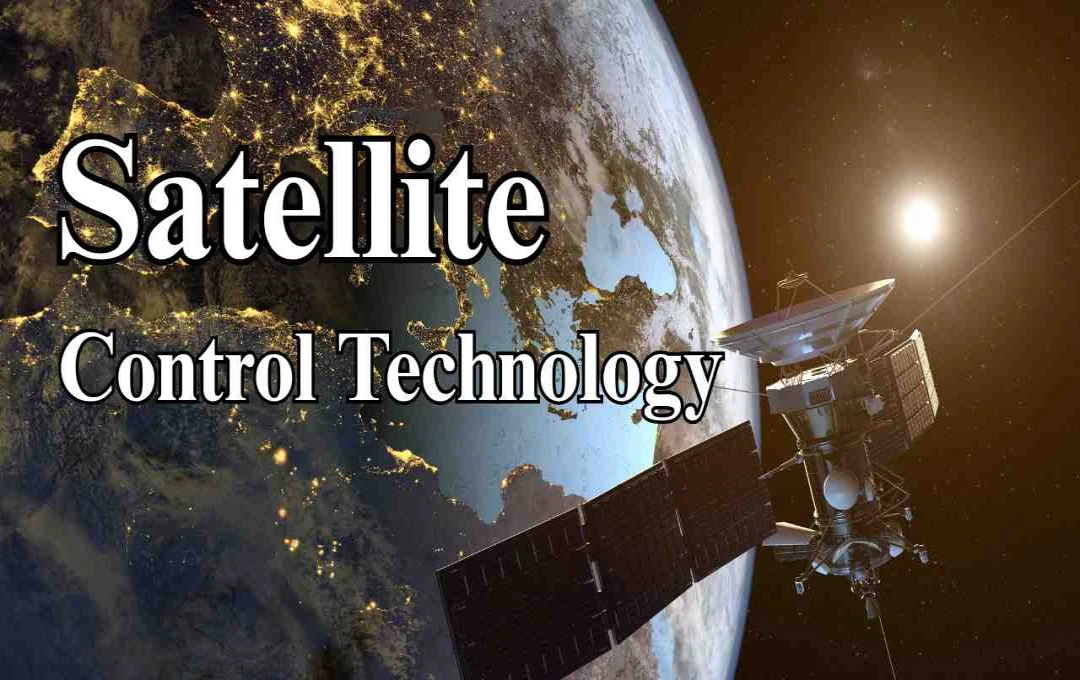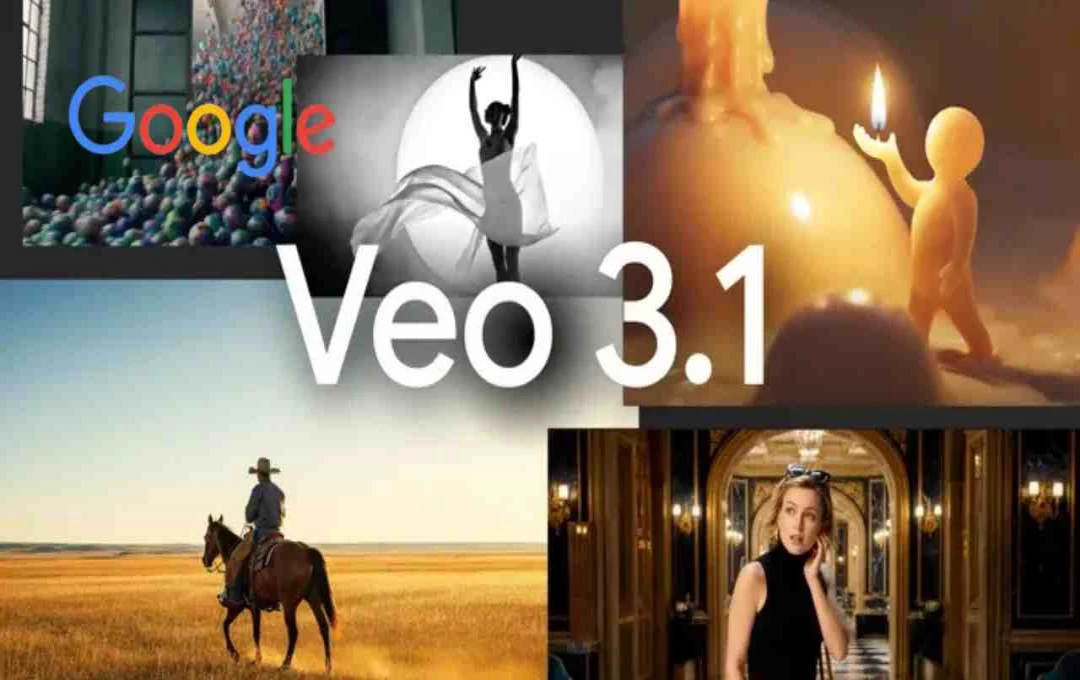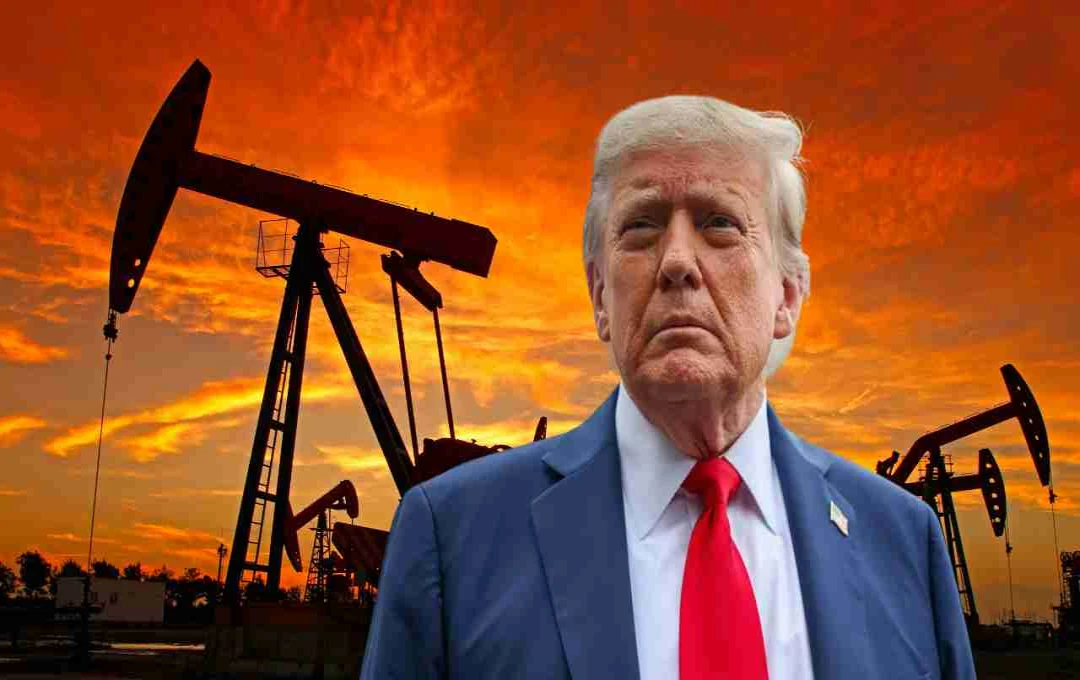Scientists estimate that by 2050, robots and Artificial Intelligence (AI) will replace humans in most industries and services. Machines will be faster, more accurate, and automated in healthcare, education, transport, and household chores. With smart cities and autonomous technology, the human role will be limited from controller to observer.
AI And Robots: Scientists and tech experts believe that by 2050, robots and Artificial Intelligence (AI) will transform human roles in many sectors. During this shift, machines in healthcare, education, banking, transport, and household tasks will be capable of making decisions and performing work like humans. Humanoid robots being developed in technologically advanced countries like Japan, the US, and China will also be able to understand emotions, interact, and handle tasks, thereby limiting the human role from controller to observer.
AI Will Be the Backbone of the Future
According to scientists and tech experts, by 2050, robots and Artificial Intelligence (AI) will replace humans in most industries and services. AI-based systems in sectors like healthcare, education, banking, and transport will be capable of thinking, understanding, and making decisions like humans.
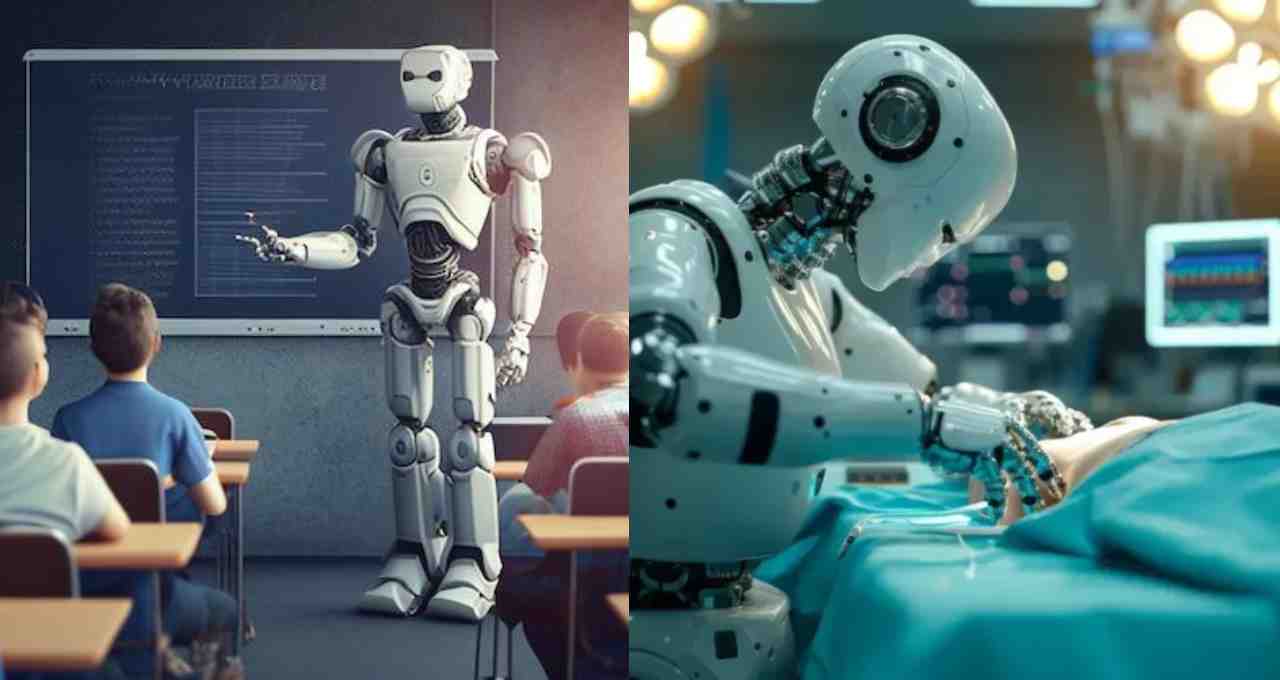
For example, AI surgeon robots will perform operations in place of doctors, capable of executing micro-level surgeries without errors. In the education sector, virtual teachers will instruct students according to their learning pace and needs. In this way, AI will become the backbone of every industry in the future.
Humanoid Robots Will Be the New Workforce
In the coming time, machines working in factories will not only handle repetitive tasks, but humanoid robots will manage all tasks like humans. This includes customer service, security, and household chores.
In technologically leading countries like Japan, China, and the US, robots are being developed that are capable of understanding emotions, communicating, and making decisions like humans. This technology will take human-robot collaboration to the next level.
Autonomous Vehicles and Smart Cities
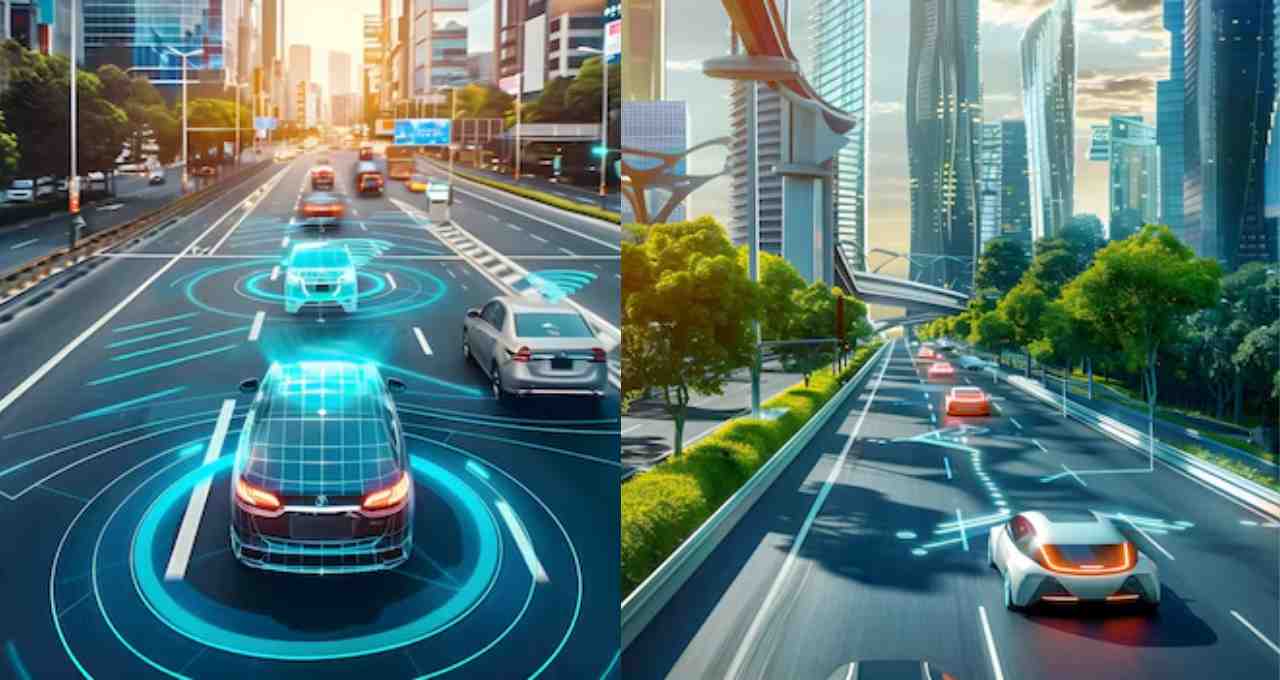
Future roads will be entirely filled with autonomous vehicles and drone taxis. Self-driving cars will obey traffic rules independently, leading to a reduction in road accidents. Drone delivery services will also be fully automated, and goods will reach homes in minutes.
Under the concept of smart cities, every device, vehicle, and building connected with IoT technology will operate autonomously. Homes will learn their owners' routines and automatically control things like lights, AC, and refrigerators. In the world of 2050, the human role will shift from controller to observer.
Quantum Computing and Superfast Processing
In the future, quantum computers will process even faster than supercomputers. This will bring a new revolution in fields like drug manufacturing, weather forecasting, and cybersecurity. The speed of computer processing will be so immense that human thought will feel slow in comparison.
With this technology, the synergy between humans and machines will become even more crucial. While AI and robots will make work faster, more accurate, and safer, humans will remain as controllers and strategic decision-makers.
By 2050, the human role in the world will diminish, but it will not be entirely eliminated. Robots, AI, and smart technology will make human life easier and more precise. Machines will become predominant in healthcare, education, transport, and household tasks.
